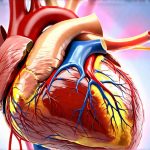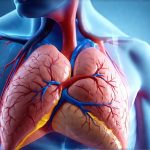Acid reflux, also known as heartburn, is a common condition affecting millions globally. It occurs when stomach acid flows back up into the esophagus, causing a burning sensation in the chest. While many factors contribute to acid reflux – diet, obesity, stress, certain medications – lifestyle choices play a significant role. Among these, smoking consistently emerges as a prominent exacerbating factor. Understanding the complex relationship between smoking and acid reflux is crucial for anyone experiencing this uncomfortable condition, or seeking to prevent it.
This article will explore how smoking impacts the digestive system and increases the likelihood of acid reflux symptoms, examining the mechanisms behind this connection and outlining potential implications for those who smoke. It’s important to note that while we’ll discuss associations between smoking and acid reflux, this is not intended as medical advice, and consulting a healthcare professional is vital for personalized guidance and treatment.
Smoking & The Digestive System
Smoking doesn’t just affect the lungs; it has wide-ranging effects on the entire body, including the digestive system. Nicotine and other chemicals in cigarette smoke disrupt normal bodily functions, impacting esophageal pressure, stomach acid production, and even the rate of gastric emptying. These disruptions can significantly contribute to the development or worsening of acid reflux symptoms.
The impact isn’t limited to active smoking; secondhand smoke exposure can also potentially worsen digestive issues for sensitive individuals. The body reacts similarly to both direct and indirect smoke inhalation when it comes to physiological changes related to acid reflux.
Long-Term Implications & Acid Reflux Disease
Chronic acid reflux, if left unmanaged, can develop into gastroesophageal reflux disease (GERD). This more serious condition involves ongoing damage to the esophagus and can lead to complications like Barrett’s Esophagus, a precursor to esophageal cancer in some cases. Smoking further complicates GERD management, potentially reducing the effectiveness of medications and increasing the risk of these long-term health issues.
Lower Esophageal Sphincter (LES) Dysfunction
The lower esophageal sphincter (LES) is a muscular ring at the bottom of the esophagus that normally prevents stomach acid from flowing back up. Smoking weakens this vital muscle, making it less effective at sealing off the stomach. Nicotine directly relaxes the LES, allowing for easier reflux episodes. This relaxation isn’t temporary; consistent smoking leads to chronic weakening and potential long-term dysfunction of the LES, increasing susceptibility to acid reflux.
This weakened sphincter allows more frequent backflow of acidic contents into the esophagus, leading to more intense symptoms and a higher risk of esophageal damage over time. It’s one of the primary ways in which smoking contributes to the development or worsening of GERD.
Increased Stomach Acid Production
While some believe smoking reduces stomach acid, studies suggest it actually increases its production. The chemicals in cigarette smoke stimulate parietal cells in the stomach lining, leading to greater secretion of hydrochloric acid. More acid in the stomach means more potential for reflux if the LES is compromised. This increased acidity can also exacerbate existing esophageal damage caused by frequent backflow.
The combination of a weakened LES and heightened acid production creates a perfect storm for acid reflux. The body struggles to contain the increased acidic volume, resulting in frequent heartburn and potential complications.
Delayed Gastric Emptying
Smoking slows down gastric emptying – the rate at which food leaves the stomach. When food remains in the stomach longer, it increases pressure within the abdomen, putting additional strain on the LES. This prolonged retention also provides more time for acid to be produced and potentially reflux into the esophagus. The delayed emptying doesn’t necessarily increase acid production itself but exacerbates the impact of already elevated levels.
The slower digestion process caused by smoking can contribute to bloating, discomfort, and a feeling of fullness alongside heartburn, making symptoms even more pronounced. This creates a vicious cycle where increased stomach pressure further weakens the LES and promotes reflux episodes.
Ultimately, understanding the connection between smoking and acid reflux is critical for anyone seeking to manage their digestive health. Quitting smoking offers significant benefits not only for respiratory health but also for improving digestive function and reducing the risk of long-term complications associated with GERD. While this article provides information on the relationship, it’s essential to consult a healthcare professional for personalized advice and treatment options tailored to your specific circumstances.


















